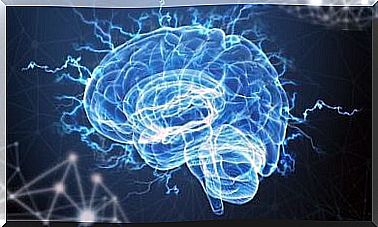Helping The Caregiver With Psychoeducation

Schizophrenia, autism spectrum disorder, dementia and other chronic or degenerative diseases require intervention that cannot rule out the need to help the caregiver. It is difficult, if not impossible, to help a person with a mental disorder without helping loved ones at the same time.
Thus, one of the interventions that offers the best results in the patient / client and in their environment is psychoeducation. This is due to the fact that a large part of the weight of the intervention falls on the family and in many cases on a single caregiver.
Some studies indicate that 75% of the needs of the dependent person are satisfied by the family or the social context to which they belong. This, together with the chronicity and duration of these diseases can have a significant impact on the caregiver, consequently on the patient.
The overload that comes with taking care of a person
Although the caregiver knows that his role is critical and necessary, he faces a number of changes in his life and this can pose a risk to his physical and mental health.
In most cases, you are not aware of the overload you will be subjected to. Psychoeducation could help alleviate this burden.

By excessive load we mean the difficulties that arise when caring for a sick person and which we could summarize as follows:
- Impact on the caregiver and the family in general.
- Physical, psychosocial and economic disorders that the caregiver faces.
- The subjective experience, influenced by the condition of care and the characteristics of the caregiver .
Psychoeducation to help the caregiver
In recent years, more weight has begun to be given to psychosocial intervention targeting families and, in particular, the primary caregiver.
It is about focusing on prevention by alleviating his malaise and thus relieving the workload that comes from taking care of someone else.
Here, through structured programs, we will try to give the caregiver the tools and knowledge to manage care and better protect himself. Among these psychosocial interventions, psychoeducation stands out.
This intervention is managed by one or more professionals. The duration is limited in time – from 7 to 15 sessions – with a weekly or bi-weekly frequency. This way, the caregiver will have time to practice the contents between sessions.
The duration of each session varies between 1 and 2 hours. In general, it is conducted in a group and can be completed with sessions or individual counseling. The main purpose is to calm the caregiver’s malaise through the acquisition of strategies and skills for self-care, beyond his role as a guardian.
In these groups, caregivers will learn to better manage situations that may arise; in addition, they will enjoy a space for exchange and emotional support. Specifically, in a psychoeducation program we will proceed to work on the three aspects that we analyze below.
Educating about the knowledge of the disease to help the caregiver
Offer the theoretical knowledge useful for understanding the relationship between addiction, disease and behavior. This is in order to understand some behaviors not as personal traits, but as a consequence of the disease.
Learn to take care of the sick
Acquire the skills to better manage the difficult situations that arise when caring for a sick person, such as working on communication or strategies to reduce the frequency of dysfunctional behaviors.
In addition, the management of the physical and social context could be addressed, teaching to identify and eliminate barriers or difficulties in the physical and family context of the patient.

Taking care of the caregiver
By offering some strategies and content, the aim is to improve the caregiver’s self-care . These include management and emotional relief techniques, problem solving and training with enjoyable activities and the acquisition of relaxation and assertiveness techniques.
Effectiveness of psychoeducation
Current studies have shown that the effectiveness of these interventions is relative due to methodological problems that would make it difficult to obtain solid evidence. Added to this is the need to overcome current limits.
Even so, psychoeducational programs offer psychological benefits for caregivers and people receiving treatment, favoring the disappearance of dysfunctional behaviors that derive from the disease and delaying institutionalization.









